What is a Health Savings Account (HSA)?
Health Savings Account (HSA) enables you to save for and conveniently pay for qualified healthcare expenses, while you earn tax-free interest and pay no monthly service fees.
Opening a Health Savings Account provides both immediate and long term benefits. The money in your HSA is always yours, even if you change jobs, switch your health plan, become unemployed or retire. Your unused HSA balance rolls over from year to year. And best of all, HSAs have tax-free deposits, tax-free earnings and tax-free withdrawals. And after age 65, you can withdraw funds from your HSA penalty-free for any purpose.*
HSA Bank
Benefits of an HSA
By choosing an HSA, there are a multitude of benefits that you can take advantage of, which include:
- Giving you the flexibility to shop around for healthcare services and products; this way you can make more informed healthcare decisions
- No initial deposits to open an account
- HSA funds stay with you when you change jobs or retire, you own the account
- Money you don’t use in your HSA rolls over from year-to-year and earns interest tax-free*
- Saving for retirement. After age 65, HSA funds can be used for any purpose without penalty (only income tax is assessed)
- Options for self-directed investments that can potentially grow your savings for healthcare or retirement**
Are You Eligible for an HSA?
If you have a qualified High Deductible Health Plan (HDHP), either through your employer, through your spouse, or one you’ve purchased on your own, chances are you can open an HSA. Additionally:
- You cannot be covered by any other non-HSA-compatible health plan, including Medicare Parts A and B
- You cannot be covered by TriCare
- You cannot have accessed your VA medical benefits in the past 90 days (to contribute to an HSA)
- You cannot be claimed as a dependent on another person’s tax return
- You must be covered by the qualified HDHP on the first day of the month
- You must have a valid email address, Social Security Number, and a primary residence in the United States
*Contributions, investment earnings, and distributions are tax free for federal tax purposes if used to pay for qualified medical expenses, and may or may not be subject to state taxation. A list of Eligible Medical Expenses can be found in IRS Publication 502,http://www.irs.gov/pub/irs-pdf/p502.pdf. As described in IRS publication969, http://www.irs.gov/pub/irs-pdf/p969.pdf, over-the-counter medications (when prescribed by a doctor) are considered Eligible Medical Expenses for HSA purposes. For more information consult a tax adviser or your state department of revenue.
Annual Maximum Contribution Levels
- 2022
- Individual Coverage
- Family Coverage
- 2022
- $3,650
- $7,300
- 2023
- $3,850
- $7,750
Catch up allowed for those 55 and over – $1,000
HSA Bank
Phone: (800) 357-6246
http://www.hsabank.com
Limited Purpose Flexible Spending Account
A Limited Purpose Flexible Spending Account (FSA) is designed to allow Health Savings Account (HSA) participants an opportunity to set aside pre-tax funds to pay for eligible out-of-pocket vision and dental services. By establishing a Limited Purpose FSA, you can save money on taxes by using the account for your dental and vision expenses while preserving your HSA funds for other purposes, including simply saving those funds for the future.
Who Can Participate
To participate in a Limited Purpose FSA, you must be enrolled in a qualified High Deductible Health Plan (HDHP) as well as an HSA.
Eligible Expenses
Eligible expenses include vision expenses, such as eye exams, eyeglasses, contact lenses, contact lens solutions and enzymes, and dental expenses, such as dental care and orthodontia expenses, as long as service has been incurred or and eligible item purchased during the period of coverage. These expenses can be incurred for you, your spouse, and eligible dependent(s). When determining your contributions, please remember that your Limited Purpose FSA can only be used for dental and vision expenses.


